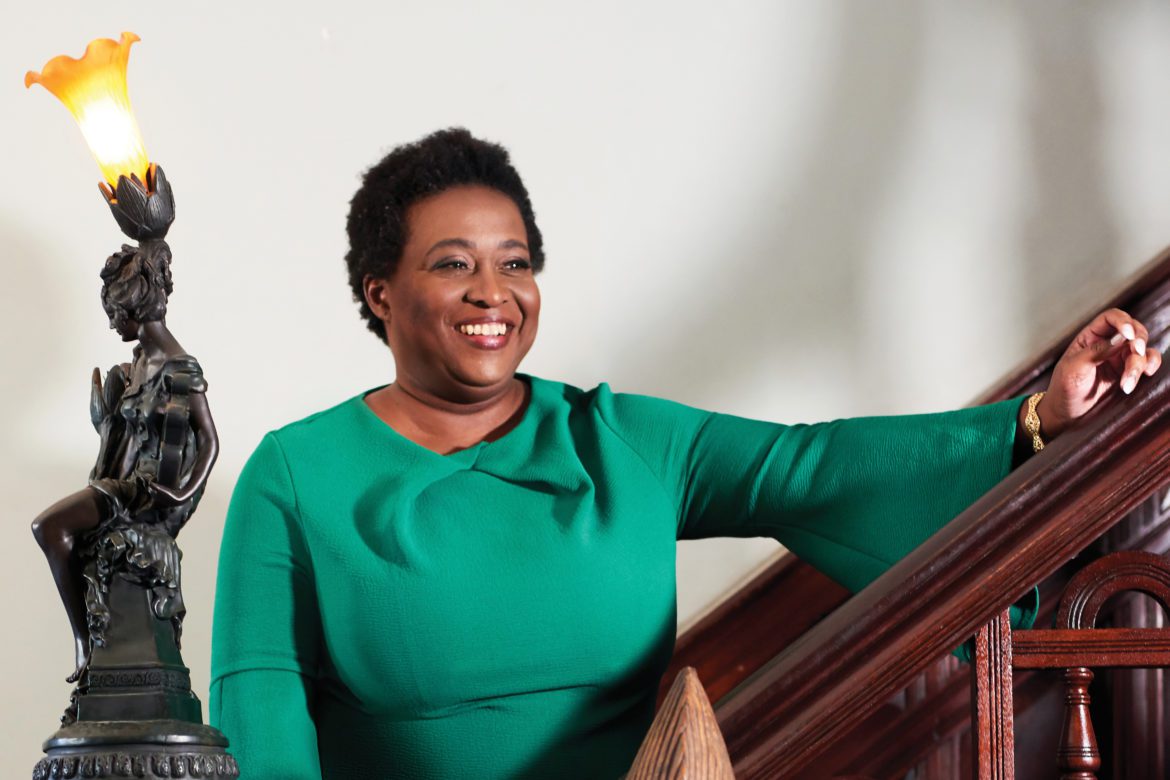While growing up in Jamaica, Bea Sibblies was unknowingly learning the distinct skills to become the revolutionary real estate developer she is today. With her father, she spent many days in the garden (landscaping) and, beside her mother, she balanced the family checkbook (finance), selected furniture for new properties (interior design) and studied with her before school (discipline). Following attendance at the United World College in Canada and studying at Yale University, she also found a love for beautiful campuses. This inspired her to focus on educational facilities in her company, BOS Development, a community-focused real estate development and brokerage firm based in Harlem. Her projects have received numerous accolades and, more importantly, have a lasting impact on the community at large. Now, Bea is ready to take it to the next level. Underway are plans for an ambitious creative hub for arts and culture in Harlem that will ultimately transform the entire fashion industry as well as promote sustainability.
As a child, what was your first job?
I helped my parents in the garden. My dad was in his mid-fifties when I was born. By the time I was two or three, he retired as a public health inspector. He would get up every morning and garden religiously. I spent a lot of time with him in our garden. My mom would grow flowers and orchids, but I would always stay with my dad. My father would weed the grass by hand. No weed killer. In Jamaica, we have a weed called the “love bush,” which wraps itself around the plants. My first job was to keep the “love bush” at bay by untangling it from the plants in the garden.
Were your mother and father both native to Jamaica and do you identify as Jamaican?
I am more affected by the experiences my parents had rather than their lineage. My father was born in 1917 and came to New York in the Second World War when they were looking for additional labor to compensate for so many men who had gone to war. It was a work opportunity for him, and he worked at Macy’s. When I was growing up, people would ask me where I was from. My theory was that my parents had repatriated and never quite got their Jamaican accent back. Maybe that is why I am here in Harlem. I have always thought of myself as a creature of the world, and I wanted to experience the world they lived in.
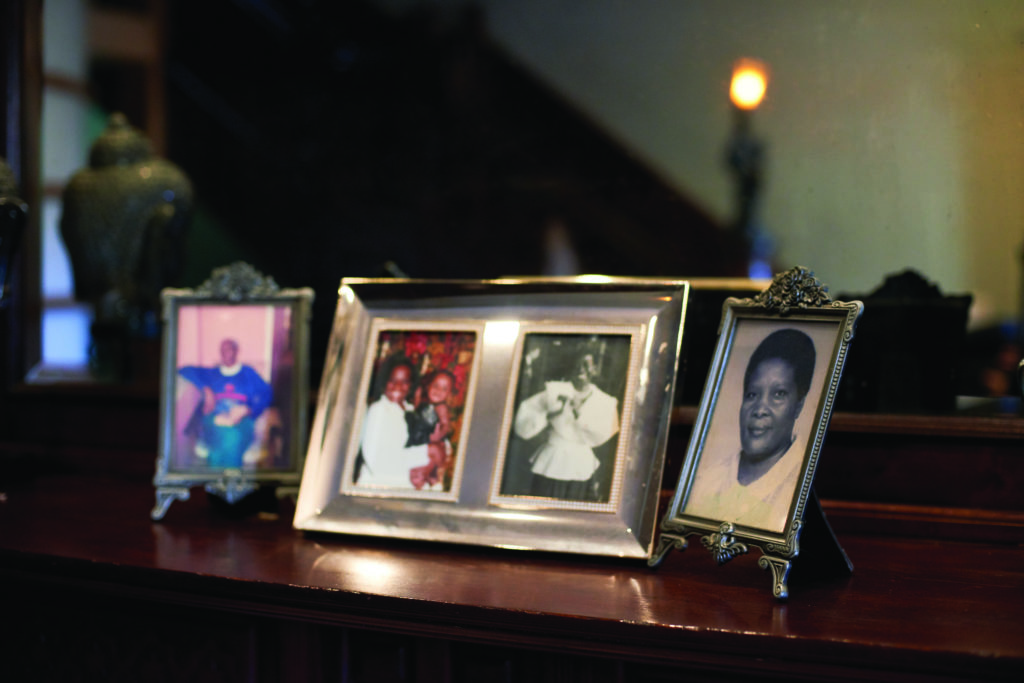
How old were you when you lost your mother?
I was 17 when she passed. I recently was asked about my mom, so I called my oldest sister and asked her because I didn’t really know my mother. My mother worked in the government for the equivalent of the Department of Labor, in training. My sister said something really interesting: my mother liked to travel. She became a little teary-eyed because when my mother had finally achieved the level of success where she could travel, she became ill. My parents were quite a bit older, so I only met one grandfather and never met my other grandparents. I was not shaped by my extended family but more by the life experiences of my parents.
At 15, you ended up in Canada. How did that happen?
I attended a Catholic public school in Jamaica called Immaculate Conception High School, one of the best all-girls schools. One day there was an announcement on the PA system about a scholarship for the United World Colleges. I thought it sounded interesting because it provided one scholarship per year for the entire country. Someone from my school had won it sometime before. I was 14 and in the fifth grade, which is equivalent to 11th grade in the US. I was very sheltered and overly protected, so much that my parents did not let me go to parties. I decided to do the interview as practice for something later in life. So, I went on this “practice interview” as a first step in applying for this scholarship. When I arrived, the smartest kids in the country were lined up in this conference room, all prepping. They were nervous because it was a big deal, but for me, it was just a practice interview. I wasn’t nervous, went in and there was a big table filled with people conducting the interview. A couple of weeks later while I was at school, I was handed a piece of paper saying that I had won the scholarship.
How did that go with your parents?
I remember it vividly. I walked home, through the garden, and through the kitchen door. My mom was standing in the kitchen, and she came out to meet me. I said, “Mom, you won’t believe this. Haha. I won that scholarship.” I never thought they would send me because I never was allowed to go anywhere. She did not say a word but took the letter from my hand. She went to see my father who used to sit on the veranda at that time of day. Ten minutes later, she walked back toward me and while I was still in the yard, she says three words. “You are going.” She sent her baby. And that was it. I went. That is how I ended up in Canada.
Were you scared?
I suppose I was more scared of the process. I had never been on an airplane. I remember the first time I saw an escalator was when I was in the airport. I had my suitcase and the boom box my sister gave me. When I stepped on the escalator for the first time, I literally fell on my rear and down the steps of the escalator on my butt because I had never ridden one before. I was more scared of the escalator than I was of traveling. As an adult, looking back, my lack of fear was probably because my entire childhood I heard the stories of my parents’ travels.
Age 15, alone in Canada, how did the next two years change your life?
I would not be the person that I am today without those experiences. There are two distinct things that shaped me. The first is my family and the values they instilled in me. The other thing that shaped me was the values of the school I went to in Canada. United World College is a very unique school that is a part of a network of colleges. When I went, there were six colleges. There are more colleges now. I have hosted, for the past five years, the New York holiday party in this very room. Unfortunately, because of Covid-19, we did not host the holiday party last year. The United World College in Canada has 200 kids, a hundred new kids each year. When I went, it was a hundred kids from 60 countries, a hundred boys, a hundred girls. We lived in five houses of 40 kids each, 20 girls on one floor, 20 boys on another floor. There were no keys, there were no locks. And there was only one rule, no drugs. It was and is taken very seriously. If you are caught with drugs, you are on the next plane to your country of origin. To be in an environment at 15 years old with kids from the entire world, where you are effectively treated as an adult, expected to behave like an adult, with the best teachers, was great. Even more important was who they selected.
Have you kept up with those early friendships and did you establish any life-long relationships from that experience?
The United World College has a different kind of impact on you. When you see someone that you went to school with it is as though you saw them yesterday, but I think a lot of people don’t stay in touch because, at the end of the year, we blow up and go back to our 60 countries. What characteristic I find in all of us is that we share and create this ability to connect.
When they select students from these 60 different countries, what is it that they are looking for?
So, we used to say it in jest, but it is that we were there to build peace and international understanding, and it feels pretty heavy, right? One of the most important people there for me, who changed my life, was my economics professor. Coincidentally, he changed my life, not by being my economics professor, but by the films he picked every Friday night. We would gather in the auditorium and watch the community films. For a bunch of 15 to 19-year-olds, they were intense and covered pretty serious topics. We watched movies about the Killing Fields, the Holocaust and more, to focus our attention on peace and international understanding. It was really a conversation about complex things that are going on in the world.
Injustices within societies?
And human nature.
The flaws of human nature?
There were happy movies. But they did not shy away from the human potential on a very wide spectrum.
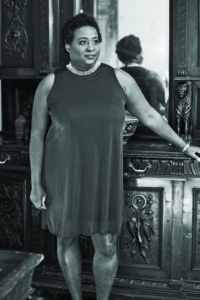
You ended up doing your undergraduate studies at Yale University at 17 years old. How did that happen?
Our school is pretty well known in Canada, so if you filled out an application, there typically was a really good university interested. I had a feeling I wanted to come to America because my dad had been here. I went back to Jamaica during break, pre-internet, went to the US embassy and asked to speak to someone, so I could get the name of top US universities. I think they gave me a book, and I wrote down the name of top US universities. I also wanted to know which universities had a good financial aid package because my parents were poor. They couldn’t afford to send me to college. The United World College—UWC was a full scholarship. I selected Harvard, Yale, MIT and Rice University in Texas because my sister was in Texas, (Rice University did not have a generous financial aid program). I applied to MIT, Yale and Harvard, and I got into Yale and MIT. I didn’t really know the difference between any of the schools. I just applied, and they sent the brochures in the mail to my campus. I knew that MIT was more science, and I am both left brain and right brain. Yale was more humanities and more about economics. Initially, because my parents and our culture focused more on the sciences, I accepted MIT. I actually put it in the mail and later fished the admissions letter out and replaced it with Yale. That was all I knew until I was on the airplane heading to Yale University. That was my first time in America.
Was that a culture shock?
The thing that shocked me about Yale, you might find surprising, was when I went into the dining hall, the dining tables were organized by race. That’s what surprised me because I had
never experienced that before. I had been to really good schools all my life in Jamaica. My parents really sacrificed, and then I tested into the best high schools. I went to this beautiful campus but being on a beautiful campus was something that I literally had experienced all my life. I was fortunate in that way. That is why now in my business, I focus on building educational facilities. I know for a kid from a poor family, middle-class, working-class family, the grandeur of going into a grand space every day. I knew how that affected my perception of what is possible because that is where I went to school every day. Yale is grand, but my Catholic school campus in Jamaica was pretty grand too.
Yale was your first, face-to-face, real-life example of racism?
Yes. Because Jamaica’s motto is “Out of Many One People.”
You never experienced racism when you were in Canada?
In Canada, we were in the middle of the boonies, and I was in school with kids from 60 countries. If you wanted to organize by race in the United World College, it wasn’t really possible. At Yale, the dining tables were organized by race, and it was just “confusing.”
What year was that?
I graduated in the class of 1990. I entered there in 1986. I was caught in between because I was a Jamaican girl, and I wasn’t white. I am a bridge for “in between.”
Do individuals born in the Jamaican culture see no divide with race?
The fact of the matter is that there is separation and segregation, but it is more based on class. It just so happens that because of the legacy of slavery, the upper classes are whiter, and the lower classes are darker or of African origin, but it’s not exclusively so.
You are the last born of six children. Have you been the most successful of your siblings in the world’s eye?
I have attended the most prestigious schools. When I was growing up, my parents, bought an acre of land in prime real estate in Jamaica, the equivalent of Times Square. I get my gumption from my mom who went to the bank and secured a large amount of money to build two family houses and four apartments. They did this while I was growing up. I look back at the way my mother influenced me in silence. I didn’t understand it then, but I would balance my mom’s checkbook at the end of every month. I knew how much money we had, how much money we didn’t have. I had complete visibility on the finances of the household.
What are your fondest memories of your mother and father?
When I think of my mom, unlike most people, I do not think of warm, fuzzy. That’s not my memory. My memory of my mom is sitting on the porch going through the checkbook every month. And we had this odd silence. We did almost everything without talking. I don’t have a lot of memory of what they said. I have more memory of what they did. My mom had me sit beside her, probably because I was the smallest, at very crucial financial times. It is funny because I am sitting here under her picture. I think about what I do as a real estate developer. So much of what I do I learned sitting at my mother’s side to manage the family and business checkbook. She went to college when I was young. She would come home, cook dinner, go to college, go to bed, wake up and study. I would wake up and study with her. As a kid, I would actually do my homework in the morning with my mother. An ability to work alone is a key part of what I do as a developer; the ability to structure yourself around productivity is key. I have my office upstairs and work at home. I work at two, 3:00 o’clock in the morning.
What did you major in at Yale?
Economics and political science.
And then?
I worked on Wall Street for 10 years. Two years at Morgan Stanley, eight years at J.P. Morgan.
Give me one hardcore lesson from working on Wall Street.
No typos.
Seriously?
No typos. Yes, because a typo could be a typo on a word or on a number. Right. And you could get the trade wrong or right. For me, that is precision.
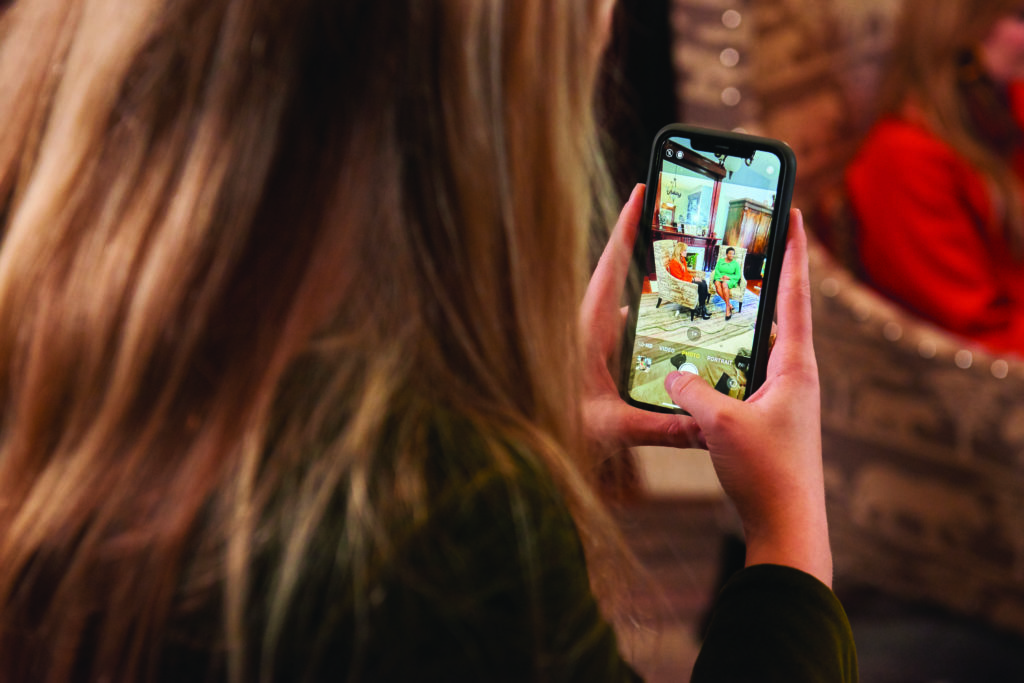
Precision. Then what happened?
When I came to the US, I was not a citizen. When I worked at J.P. Morgan, I was on an H1B Visa, and they ultimately applied for my Green Card which I received, year seven. Around the time I got my green card, there was a merger between J.P. Morgan and Chase. At the one-year anniversary of the merger, they rationalized the staffing, and a lot of the legacy J.P. Morgan people, including myself, were let go. I remember my boss, who is still a friend, being heartbroken because she was legacy J.P. Morgan. She was so upset to let me go, but I felt that it was my time. I was never on Wall Street because it was my passion. I was on Wall Street almost as an extension of my academic training. In my career there, I learned, in addition to precision, a fundamental skill in structured finance.
I was focused on Latin America, doing structured finance, looking at deals, doing credit cards, mortgage backs and credit derivatives. My role was very multidisciplinary, which I was drawn to. I had built a good skill set of literally being able to see the same techniques across multiple platforms. In that same way, as a developer, I don’t just develop one type of asset. If you look at my resume, you’ll see that I did many different things on Wall Street. I was a researcher, analyst, in corporate finance and on and on. The best way to make money on Wall Street is to keep doing the same thing over and over, but my skills were for the complex, one-offs. My boss would ask me, “Beatrice, that deal that you just did, couldn’t you just do another one?” I never did a deal twice. At that time, I felt like I had gotten as much as possible from the experience. I had seen the game at its highest level. The only other thing for me to do was to do the deals I had done, over and over again, so there was nothing else to learn.
Wharton?
I got the notification of severance the Friday before September 11th. I had not completely left J.P. Morgan and still had the J.P. Morgan ID. My personal things were still on my desk. After September 11th, it was clear to me that not only was my J.P. Morgan career over, but also my finance career was over. I never went back to finance. I had to think about what I wanted to do. I struggled a lot personally with the decision-making process.
People have always thought, myself included, that I would be a politician and run for office or something crazy like that. By contrast, there has always been a part of me that likes business and functioning in a more executive role. Executing on a mission and on a plan versus politics where you are more of a mediator is a different skill. These are two different personality traits that I struggle with. I was hoping to identify which one was dominant. I went to Harvard to visit the JFK School of Government. I had gone through the training program at J.P. Morgan and rose to Vice President, but I had not received an MBA. I really liked the program, but it was September, and I had to find something to do until the following September.
The next week, I went to the Congressional Black Caucus, and I sat in on a panel with the great Maxine Waters. She was holding a panel on urban development, and there were very, very few Black developers. The main one was Magic Johnson’s firm, and his number two was the panelist. At the conference, I walked up to Maxine and said that I would like to work for her as she was the ranking minority member on the finance committee. She agreed to meet with me, and I arrived in her office on a Monday morning after the conference. She does not remember the meeting (which I guess is credit to her that she helps so many kids that she literally didn’t remember), but when I arrived, her staff advised me to go to this restaurant in Washington, DC where we would meet.
I went to this restaurant, and she sat me down for two to three hours and discouraged me from entering politics. After listening to me, she said, “When I push for diversity, there are not many African-Americans that can manage large and complex projects. With your background, have you considered real estate?” I don’t even think I told her about my mom. I just said, “Hmm, let me think about that.” Knowing in my head that it was sitting with my parents and helping them with their real estate project that got me into finance. The next day, I went into her office, and she had me draft a position paper, which I did, just to get a feel for it.
I came back to New York, and I thought about it for a couple of weeks. I applied to the NYU Real Estate Masters program and was admitted that January in the NYU Real Estate Master Program—a one-year program. I took all the core curriculum. At the end of my first semester, I attended a conference and met Patrice Derrington. She was serving as the Director of Economic Strategy for the Lower Manhattan Development Corporation, which was created to lead the rebuilding of the World Trade Center. We chatted for a few minutes and she said, “Come work for me.” Shortly thereafter, I started working for her, learning development and planning at a very high level. When I went to her office on the first day, she had flowers waiting for me on the desk.
I realized the thing that I didn’t know was managing large organizations and managing large complex processes. I could do finance. I could figure most things out, but how to manage something complicated, I didn’t really understand. That was the impetus for applying to Wharton because Wharton was not only good in finance but also organizational management from an operations perspective and a tactical perspective. I attended Wharton in the executive MBA program.
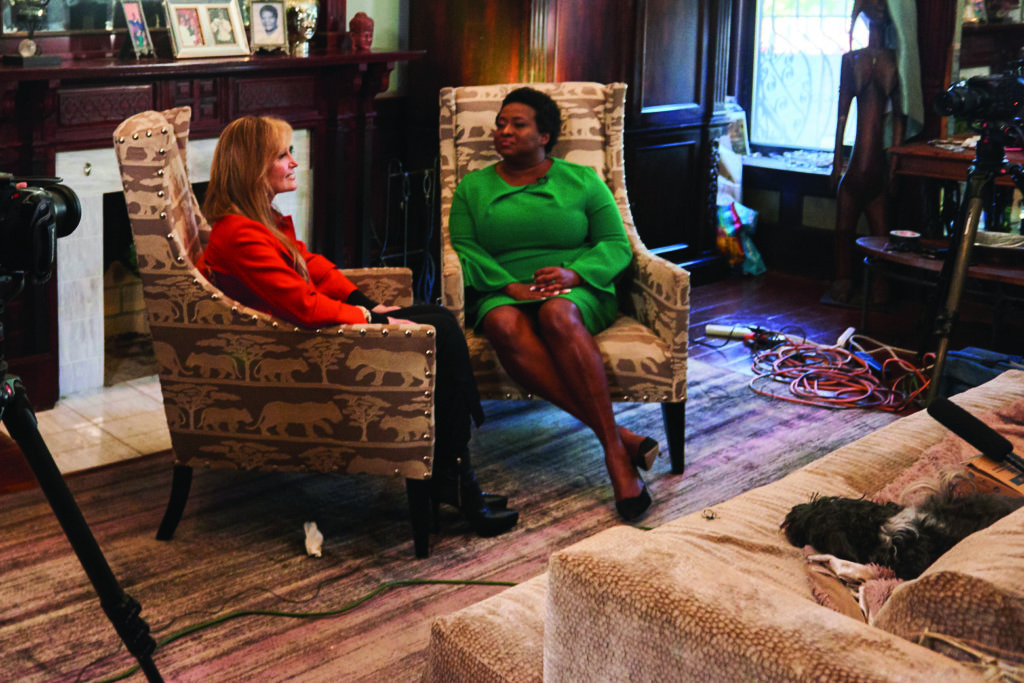
Your legacy for helping women, where did that come from?
You ask questions that I haven’t really thought about before. I never sit here in this precise place either (gestures chair) because this is where my guests sit. I have never actually sat under the picture of my mother before, and I have been living here for 20 years. I get it from my mother.
What is BOS?
First of all, my initials.
What else?
I used to describe my company, BOS, as a community-based development and brokerage company that delivers a range of assets to create a vibrant community, ranging from education, hospitality, residential, commercial. BOS is defined as such in my Bio. But what I’m beginning to understand is that I foster transformation. Transformation in people and transformation in communities. I have been doing this all my life. Real estate is a physical transformation, where you take a piece of dirt and you create and transform that dirt into a thing. But as my work evolved, I realized that is just the beginning. Real estate is just the vessel. It is just the skin. I find myself pulled more into what happens inside that skin.
As a vessel for transformation, how do you intend to manifest into your passion project?
My passion project is the intersection between where art is commerce and commerce meets art. In my real estate practice, I work with a lot of faith-based institutions. This started, because in Harlem, there are very few development sites. Most of the development sites of a size that are economically attainable for an emerging developer like me are controlled by churches. My first project was a condo, built on a land lease from a church. In my work with churches, I discovered there are many hundred-year-old plus churches in Harlem. Some of them are landmark-worthy. It is a big challenge in the community because it’s heartbreaking to destroy these buildings, hundred-year-old classic buildings. The building gets torn down and a big box retail or condos are built.
I had been looking for a landmark church because one of the things in the New York real estate code is that with landmark buildings, you can petition for a change of use. People might know a church downtown called the Limelight that was changed into the Limelight Club, now a market. I had been looking for a landmark church to create a market like Chelsea market. A couple of years ago, I was alerted to this church site, the All Saints Church in Harlem. It is not only a church, but it is a campus.
How large is it?
86,000 square feet combined. There is St. Patrick’s downtown. All Saints is the St. Patrick’s of Harlem, built to the same architectural standards and significance, probably the same architect. It is a trophy. The sanctuary is 69 feet high. It is one of the most majestic buildings in the heart of Harlem and probably one of the most majestic buildings in New York City.
How would you transform that?
I did a tour of the building, and one of the things I learned at Yale is the theory of comparative advantage. If you want to think about how to develop a country, you should think about what a country is good at. I do my real estate the same way. I walk into a building, getting the building to tell me what it wanted it to be.
What did it say?
There is a sanctuary, 69 feet tall. And underneath that sanctuary, the cellar is 15 feet tall. There is this volumetric, one of a kind, space. Even with Harlem’s cultural legacy, there are very few cultural and performance venues. Very, very few and most of the jazz clubs in Harlem have closed. Harlem’s famous Lenox Lounge was closed two years ago. Most of the jazz clubs in New York City are in Midtown. We don’t have very many destination venues in Harlem. So that space spoke to me as an experience, a location where you could do the range from performances to fashion shows to exhibitions, weddings, i.e. just a full-on cultural experience, with food and everything. There is no place with that level of seating capacity north of the Museum of Natural History on the West side, and no space like it uptown. So everyone in uptown goes downtown for major events. Even though a part of my business is building schools, I am building the schools of tomorrow which need a certain technological infrastructure. But this is like the old-fashioned school. With the big classrooms people could do work here, but not schoolwork. This could be the most amazing office building.
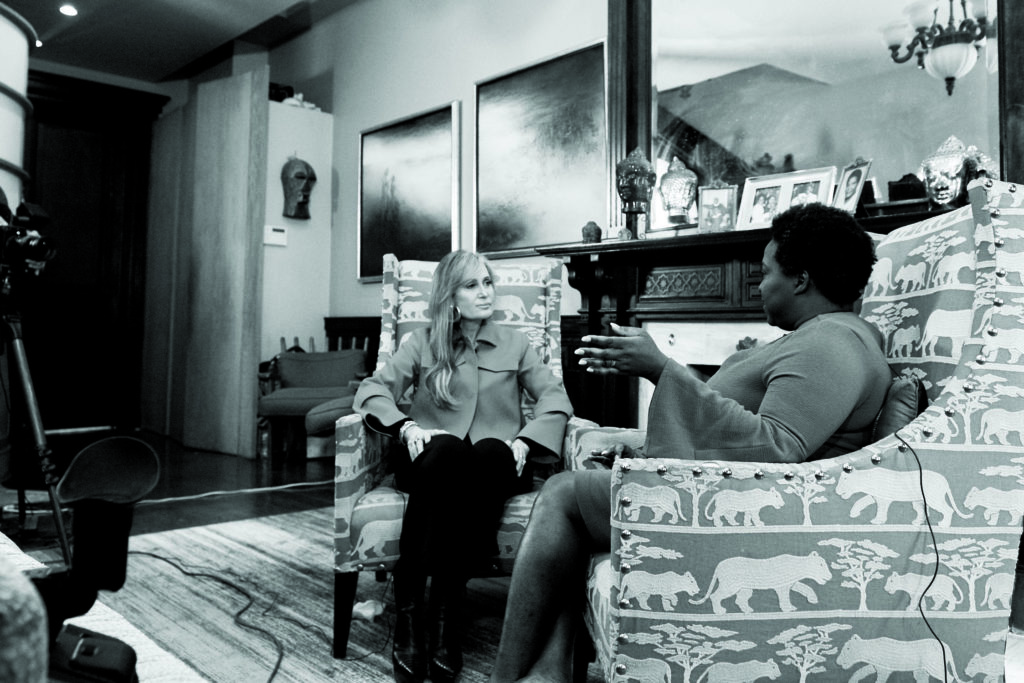
I thought you were going to say like Juilliard, where you would have these huge classrooms for musicians…and it was going to be an arts or cultural destination. Instead you went business?
It is the business part of my head. First, creative coworking. During Covid-19, in New York City, we couldn’t even make gowns for medical professionals. It is important to bring creative work back into the city. This would serve as a hub for fashion, food, arts and culture. In the last six months, fashion is going through a fundamental transformation. No one is going into retail stores anymore. Fashion is coming to you in a box customized for you. So what this will do is it will create what’s called in fashion a full-stack experience, where we will curate emerging designers, give them the infrastructure to become brands, and position them with the full-stack capabilities all the way from printing their custom fabric to digitizing patterns, to automating cutting, to marketing and shipping.
An incubator for food and fashion. How is something like this funded?
We are making it up. The challenge is not in financing. The challenge is setting it up. And literally we are creating a new model here that does not currently exist. We effectively are creating the WeWork of fashion. There is a WeWork for technology in Silicon Valley. I’ve never seen anything like this for the fashion industry, the garment industry or for creatives. We literally have to break down the cost structure and figure out the pieces of equipment that we need.
How far out are you from realizing this dream?
The site is not yet zoned for commercial, so we have to change the use to commercial. We finally figured out that a lot of the uses that we have for the sanctuary are actually uses that happen in museums. We will develop the project in two phases and effectively develop the sanctuary first as a museum in a nonprofit status and develop the school later.
Now, will that museum have areas for the community at large to come to an amphitheater or a huge auditorium? You mentioned that was one of the areas of need.
Yes. It is also an educational opportunity. Textiles are, as you know, currently one of the biggest polluters because of the old-fashioned way of mass production of clothing a year in advance; pick a look, pick a color, produce a lot of it. A lot of dyes pollute the water. If it doesn’t sell, take all those clothes and sell them into landfills.
Textiles are therefore one of the biggest industry polluters. The model that we are contemplating led my friend to say, “You’re not in the development business; you’re in the business of transformation.” The opportunity is, how do we actually not just transform the place of African-American designers in the fashion industry, but how do we become a part of transforming the fashion industry to a more sustainable model of production? And then while we were doing all this research an epiphany happened. Here we are sitting in Harlem as African-Americans because of fabric. Yet, the entire explosion of the transatlantic trade was about the exploitation of cotton. You’re from the Carolinas? Right. When you look at the research at the time of emancipation, 1.8 of the 3.2 million slaves were producing cotton.
Bea, where do you find the strength to take on these herculean projects?
I feel like I have learned one thing in every major school that I attended. I listened to those three things every day. When I was in Catholic high school in Jamaica, I think it was called Archimedes’ principle, “If you find the place to put the lever, you can move anything.”
That’s number one. What was number two?
At Yale, and it was Schumpeter’s economic theory; simply put, economic change creates political change. Political cycles are shaped by the economic transformation, which we are now going through the technology, digital and AI transformation.
Number three?
The third educational lesson I learned at Wharton. To build a business, you must solve a problem. That is what I spend my days doing. Find a problem that’s big enough and interesting enough to solve. Put your lever where you can make the biggest difference and then leverage the hell out of technology and use the technology, which is an agnostic platform. Make it directional. This technological revolution that we are in could create some of the worst inequality the world has ever known, but it also could ignite creative destruction, where a super talented girl from Harlem who comes into a WeWork of fashion can use a half-a-million dollar machine for an hour a day and just pay for her hours’ worth of the machine and build a top fashion line.
And level the playing field?
Yes, and level the playing field.
What do you want to accomplish in this next chapter of your life?
This project is what I want to do in the next chapter of my life. I have spent 50 years in school, filling my brain. I can hardly remember names my brain is so full. I want to put it to work. Jamaica is an interesting place because of social experiments, right? Michael Manley nationalized all the private schools, the legacy colonial elite schools, which made it possible for someone like me to exist. On the other hand, he also nationalized the sugar plantations and destroyed the economy.
Growing up, we had no food in the stores. It was like how the average supermarket looked during the peak of Covid-19. There was nothing on the shelves. It didn’t matter if you had money. In Jamaica, the slaves, after emancipation, moved into the Hills, so all the food in Jamaica was grown in the hills. The entire country was being fed off these small inefficient farms in the Hills. Fortunately, we had access to one, and once a month, my parents would load up the station wagon, drive to the farm and load as much food as possible into that station wagon.
The best land had been used for sugarcane production. We would drive past these idle green sugar plantations with rotting equipment on the side, with no food in the city. We saw these plantations just covered in lush green sugarcane that could not even be harvested because the factories were bankrupt.
That experience shaped my life with one thought. It did not have to be that way. Mother nature gives us everything. How do we use what we have been given? There is no reason for hunger. There is no reason for underemployment. There’s no reason that everyone cannot have a beautiful house to take care of their family. There is no reason we cannot live in bounty. We just are not organized for bounty. This is I what want to spend the rest of my life doing, tapping into nature’s principle of bounty and making communities thrive, communities like Harlem, where there is too much hunger and too much lack of opportunity. It is not natural. It is not a natural state of being.
What life lesson can you impart?
Listen. It is what I say to everyone that I mentor. The reason I think I am an effective builder is I listen for the you in every person. And to answer your next question, how can I do what I do, which is so hard? Because I have listened to myself. I listen every morning for who the real me is. If I am being the real me everyday, then I know I have the angels on my back.
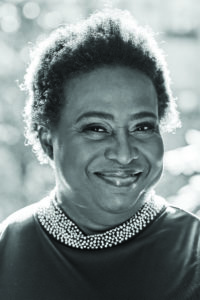
What is your purpose in one sentence?
To live a life of integrity, creativity and passion.
Do you believe that you can accomplish that?
I am a part of a women’s group that has been meeting during Covid-19 through Zoom tea. An older, wiser woman was in my Tea chat room, and she told a story of how she made her way in her time with a lot less opportunity than I have. She said the “masters of the universe” would take her under their wings. One of the things that she used to do was always fly first class. A lot of the people that she’d met professionally, she met in first class. I was the moderator, so when I was summarizing, I said, I wanted to thank her for letting me know that I thought I was flying first class, but I am flying coach. Metaphorically, the lesson that I have learned is even with all I am doing, I still fly coach. There is nothing derogatory about flying coach either. I am not flying at my ultimate potential.
The only way that I can achieve my potential is to take it higher. I have to get out of my comfort zone at a level that I don’t even understand to achieve what I want to do. I have to play such a big game that in all the fancy schools I’ve been to, all the fancy places that I have worked, I still have not played at that level. I am excited to step into that place, and I am not scared. I know I have to train mentally and physically. How do you create a Serena Williams? How do I play at that level? That is my challenge. How do I get myself into that level of conditioning? Who are the coaches and what are the teams that I need to perform on that level? It’s a thing. You don’t become Serena Williams by accident.
Do you have those answers yet?
No. But I’m listening very carefully and welcoming the response.

